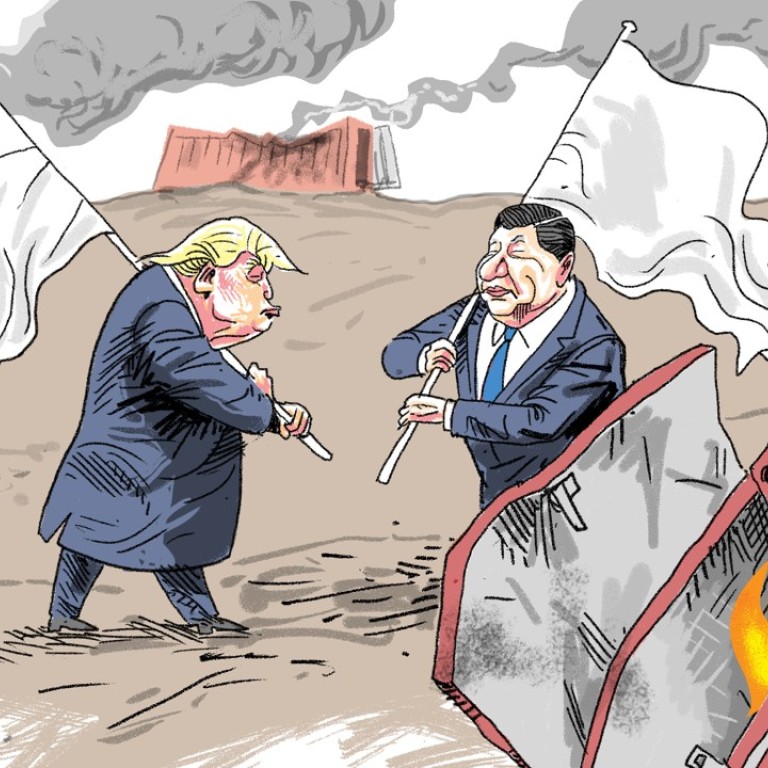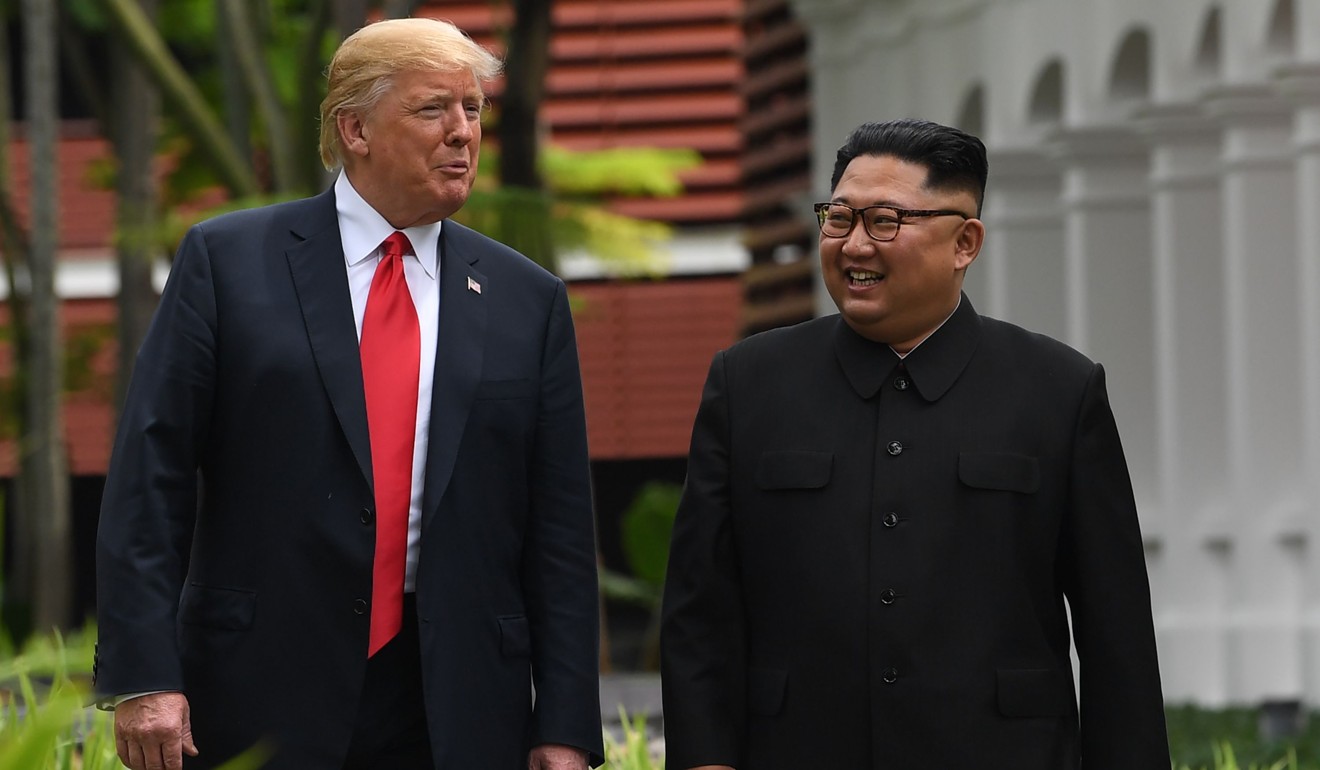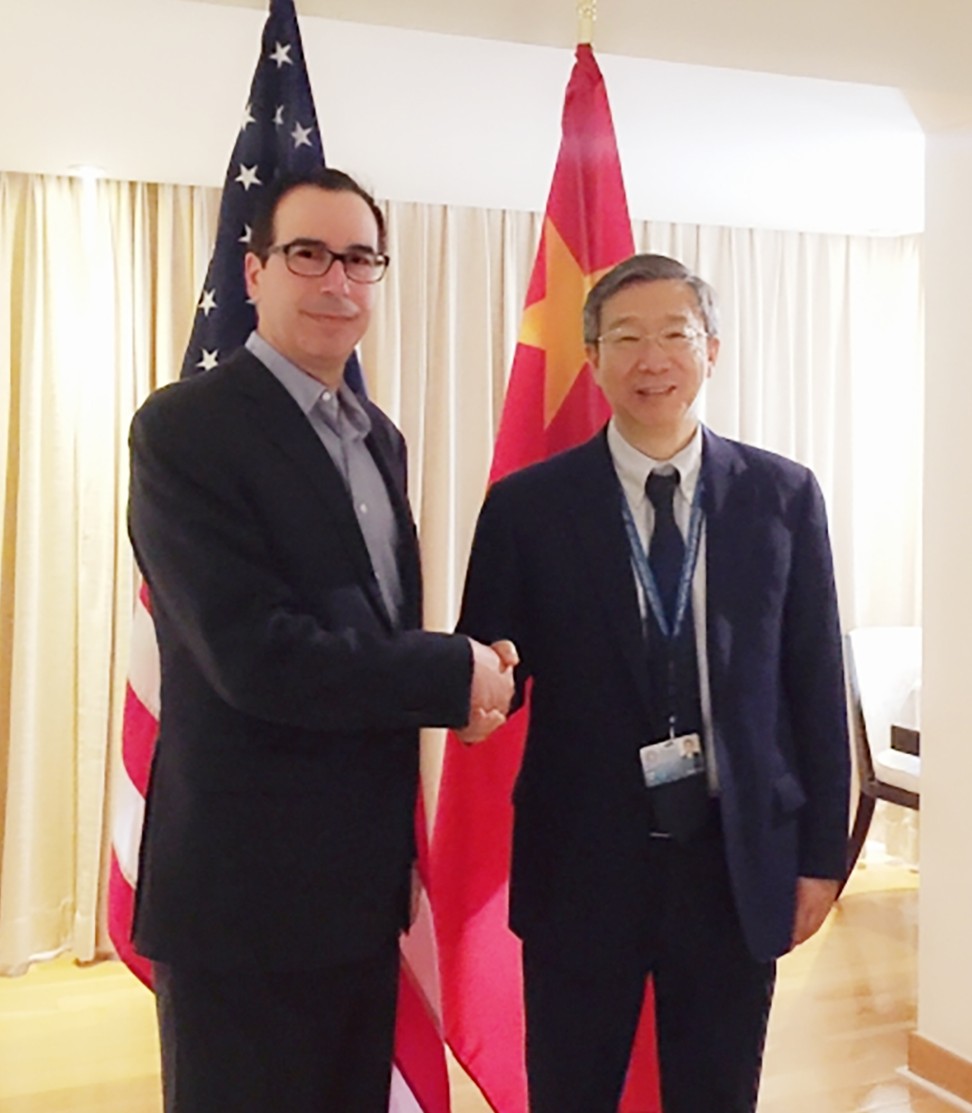
The trade war could well end in November, with Donald Trump and Xi Jinping calling a truce
- Deng Yuwen says signs are pointing to the US-China trade war ending in November
- Donald Trump has made an overture to Xi Jinping, and the Chinese have hinted at the possibility of making concessions to the Americans
But I’m making a bold prediction that the trade war will end before the end of the year, and signs are already pointing to this.
Watch: Jack Ma says US will ‘suffer more’ in trade war
According to China’s trade data for the first three quarters and UNCTAD investment data for the first half of the year, the trade war has yet to achieve the US’ aims of improving the trade deficit and attracting foreign investment. China’s goods trade grew by 9.9 per cent to 22.28 trillion yuan (US$3.2 trillion) in the first nine months. Its exports rose 6.5 per cent, and its trade surplus was 1.44 trillion yuan.
So the overall impact on China’s exports should not be that significant, much less fatal. In addition, China attracted the largest inflow of foreign direct investment in the world in the first half of the year, up 6 per cent to more than US$70 billion, while foreign investment into the US plummeted 73 per cent. Apparently, Trump is so far failing in his attempt to attract more foreign investment to the US.
Watch: China becomes world's largest recipient of FDI
The G20 meeting is an opportunity for the two leaders. It would not be appropriate for Xi to attend the summit and not meet Trump. But should the Trump-Xi meeting fail, it would be better not to have met in the first place.

Therefore, the two sides must be going to the meeting prepared, and compromises are going to be reached. In other words, Trump is unlikely to make indiscriminate demands China would not agree to. At the same time, the Chinese could also be more flexible on some matters of principle and make greater concessions to the US.
Also, a large number of US-owned enterprises are producing and selling goods in China, but they are not included in the US-China trade data. Second, China is prepared for the worst, but “still sincerely hopes to find a constructive solution”.
Third, Beijing aims to solve structural problems with the Chinese economy by speeding up domestic reforms and opening up further, strengthening intellectual property protection and considering “competitive neutrality”, i.e. no more favouritism for state-owned enterprises.

So, if Yi’s speech is indicative of Beijing’s latest attitude towards the trade war – and it probably is – then Xi’s gift to Trump could be competitive neutrality. China could address favouritism granted to its state-owned enterprises to meet the US’ requirements.
What could they be in contact about, other than the terms of the Trump-Xi meeting? If the two sides can finalise a gift list, the meeting should go according to schedule, and the world can reasonably expect Trump and Xi to call a truce.
Deng Yuwen is an independent scholar and a researcher at the China Strategic Analysis Center Inc. This article was translated from Chinese

